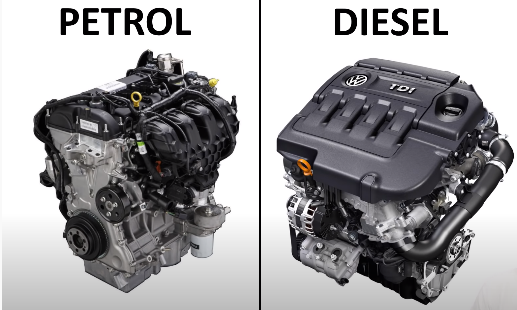It’s a good idea to get a diesel exhaust liquid refractometer during your DPF maintenance trip.
What does DIESEL PARTICULATE FILTER mean? We all know that extra equipment can slow down your truck, make it bog, or hinder its performance. The LAW mandates emissions technology. DPF deletion is an offense
Autoexhaustguide.com provides a community resource that helps diesel truck owners to raise environmental awareness and remove the diesel particulate filters from their trucks.
What’s a DPF Deletion?

DPF delete is the most frequent modification to the DPF system, meaning that the DPF unit is removed from the exhaust and replaced with a piece of straight pipe. Alterations to the ECU of the four-wheel drive are also required to “switch off” the DPF system from its computer’s side, ensuring that it doesn’t throw codes and lives in limp mode. The DPF has sensors that monitor temperature, flow, and pressure, informing the ECU when to perform a regen. Regen is not necessary if there is no DPF.
Do I Need To Delete My DPF?
This website provides easy-to-use information about alternatives to an HTML PDF delete kit. It also highlights the costly fines imposed on those who violate emission control technology. Avoid being fooled into removing your truck’s emissions technology. You will avoid paying fines and possible legal action. Do not DPF Delete.
What is a Diesel Particulate filter? A diesel particulate filter (DPF) is a device that removes soot from diesel vehicles’ exhaust gases.
Diesel engines don’t combust fully and can produce a wide range of particles. Incomplete burning can lead to the production of black carbon, also known as soot. Modern modified particulate filters can capture up to 95% black carbon soot.
There are many kinds of DPF filters available on the market. The most popular type is cordierite, which is a ceramic material.
Cordierite filters can filter particulate matter effectively, but the low melting point is its main problem. Substrates can leach into the fuel-air mixture and complicate the filtering process if it reaches its melting point. Regeneration is the process of achieving the melting point.
Why Would Anyone Remove a DPF?
Some drivers and companies that offer this service see removing a Diesel Particulate Filter as a cheaper way to run their car. It is often cheaper to remove a DPF than purchase a new one. However, long-term costs associated with removing a DPF can be very high.
Are You Maintaining Your DPF?
Regeneration involves the burning of soot to make it ash-like. There are three types: active, passive, or forced regeneration often displayed on the onboard diagnostics under ‘REGEN.’
To avoid further damage to your DPF, ensure that the regeneration system works correctly. REGEN can often stop working due to a defective sensor. You must have it checked by a diesel engine mechanic.
It is important to remember that extra fuel can facilitate burning, heating the DPF, and burning the soot. DPF-equipped trucks will result in lower fuel consumption depending on how often your DPF regenerates.
We recommend adding a special diesel additive called Secret Diesel Exe to your diesel tank to lower the amount of REGEN required on your truck and can reduce your regeneration cycles by as much as 50%.
U.S. Regulations on Diesel Emissions

This ongoing emission problem caused by diesel vehicles has gravely affected the U.S. Rocky Mountain National Park, Yellowstone National Park, and other parks have seen temperatures up to 3.4 degrees Fahrenheit higher and fewer days of freezing each year. Temperatures have been at their highest level in 50 years, which is alarming.
Climate Change and Black Carbon
Dieselforum.org’s study shows that diesel contributes 25% to global black carbon sources. Climate change is caused by the gradual rise in global temperatures due to melting polar ice caps. Black carbon is a significant contributor. Every year, millions of people die from rising air pollution. Particulate matter (PM2.5) from diesel combustion can penetrate the tissues of the lungs and cause significant damage.
It can also worsen existing heart conditions, such as asthma and bronchitis. It has been a concern that sulfurs found in polluted water are constant.
Volkswagen pleaded guilty to evading U.S. government sanctions regarding diesel emission rules. The company was required to pay civil penalties of USD 4.3 billion. The company incurred USD 21 billion in actual damages and costs.
They put software in their cars that activated pollution control during government testing and disabled them during daily use. The result was 40x more emissions than what is legally allowed. The organization was caught between satisfying its customers and complying with government regulations. The environmental damage done by diesel engines manufactured by German automakers is alarming, especially when you consider that they account for 3% of the U.S. market.
Diesel vs. Gasoline Vehicle Emissions

Concerns have grown about Diesel engines’ emissions compared to gasoline counterparts. Diesel engines are more fuel-efficient and have a higher density. Diesel fuel is less flammable than other fuels.
Consumers prefer diesel because it’s cheaper, and many countries worldwide are trying to reduce their carbon footprint. Diesel is denser than gasoline and produces more greenhouse gases per liter, particularly NOx emissions.
Diesel vehicles are more expensive upfront and produce more Nitrogen Oxide, making them more dangerous than carbon monoxide. The American vehicle market is shifting rapidly towards hybrid and electric solutions.
What do Americans think?
One of the most persistent inconveniences of the 21st Century is pollution. The environment is a growing concern that governments are beginning to realize.
The Diesel Technology Forum conducted a survey and found that 40% of Americans desire a Diesel car, up from 13% in the past decade. Learn more about the EPA fines for DPF deletions.
Many people choose to get rid of their DPF for various reasons. These are the top reasons to get rid of your DPF.
- Performance Increase: 5-10% increase in power
- MPG Increase: 30% to 50% Increase in Mileage
- Low Maintenance Costs: You don’t have to maintain the DPF-related maintenance tasks.
- Reduction of Fire Risks: A lower chance of fire means no DPF
- Engine Life: 50% to 100% Increase in Engine Life
- ReGen Cycles are Easy: A DPF is not required necessitating the removal of soot from the DPF.
Even though technology has made diesel engines more efficient at removing soot particles than older models, changing the filter after a particular mileage is still necessary. The preferred option for you would be to replace the filter instead of letting it cause damage to your truck’s internals.
The DPF must meet the 2007 Environmental Protection Agency emission standards. There are thousands of diesel truck owners who want to remove DPF filters. Although DPF removal can improve performance and increase mileage, there are serious downsides or disadvantages to it:
PM2.5 Particles and SOOT: These particles are released into the air, causing respiratory problems that worsen existing conditions like asthma, bronchitis, and heart disease.
Accelerated global warming: Greenhouse gases are the most significant contributor to global temperatures. One of the main culprits is diesel. Many of the adverse effects of global warming are being suppressed thanks to government pressure.
DPF is illegal: Many governments have strict policies regarding the removal of DPF. Because government agencies such as the EPA have been cracking down on DPF elimination, you could face heavy fines and penalties. This rule does not apply to off-road or racing vehicles.
DPF replacement can be costly, but it is in the best interest of both the environmental agencies and the statutory laws to avoid DPF deleting.
It’s also best for your wallet and yourself!
Since 2014, it’s been an MOT failure. In 2018, the MOT test was made stricter. It is difficult to determine if you can remove a DPF from a vehicle by simply looking at it.
Do I need to get rid of my 6.7L Cummins engine? Simply put, it is not a good idea to remove any diesel pickup’s emissions equipment. It is a federal crime not to remove factory-installed emissions equipment, regardless of state and local testing requirements. The vehicle’s warranty is voided if the emissions equipment is removed. It is impossible to conceal removing emission equipment from a dealer. Even if all the parts are replaced, the ECM will still be visible.
While legalities may be necessary, there is no need to take out emissions equipment. Heavy-duty trucks can achieve more than 20 mpg highways (we have found this in our regular testing). Many tuners can now make considerable power even with all the emissions eq

